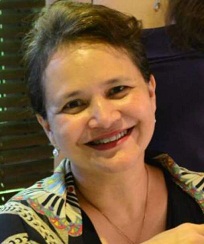
Alison
KOTA KINABALU: Abiding strictly by standard operating procedures (SOP) as well as innovating teaching and learning methods would provide a more conducive environment to facilitate effective learning, especially for pre-schoolers.
Taska Jolly Learners and Tadika Jati principal, Creena Alison Wong said it was vital for pre-schoolers to have physical classes, not only for the children’s educational wellbeing but also for parents who are working.
She said online lessons for young children cannot continue forever, especially for pre-school and lower primary school children, because the best way for them to learn is through exploration, socialising and face-to-face communication.
“Having to monitor children who are learning from home is also disruptive for working parents. Children need structure, routine and discipline and it is difficult for them to get this through a screen at home.
“Children are active learners; they need physical activities in their daily routine. In addition to the stress experienced by parents while working from home, they also need to ensure their child not only follows the online lessons but completes projects that are usually done in school.
“That said, pre-schools must find a way to innovate their lessons so that children can attend physical classes safely, while parents can go about their day knowing their children are taken care of,” said Alison.
She told The Borneo Post that Taska Jolly Learners would soon implement “bubbles”, which would further reduce the risk of infection of Covid-19. She said this following the recent closure of Tadika Jati due to a positive case, which inspired her and her staff to set up more precautions on top of the school’s already strict SOPs.
“When a teacher recently tested positive for Covid-19, we immediately closed the school, quarantined ourselves, got tested and carried out disinfecting works. Remarkably, none of the other teachers, staff or students tested positive, despite the one teacher teaching more than one class.
“This is a testament to the effectiveness of abiding strictly by SOPs. I strongly believe that the rest of us tested negative because we always kept our masks on, we washed our hands frequently and we disinfected commonly touched surfaces.
“However, we will soon implement class ‘bubbles’ so that if another positive case is detected, we only need to close one class as opposed to the whole school (as currently permitted by the Ministry of Health),” said Alison.
She explained that the idea for class bubbles was inspired by the procedure in dealing with hand, foot and mouth disease (HFMD). Before Covid-19, HFMD was a kindergarten or pre-school’s worst nightmare. Nonetheless, class bubbles were implemented to curb the spread of HFMD and avoid total school closure.
“If this worked for HFMD, there is no harm in trying this same method to curb the spread of Covid-19. Before this, some teachers moved from one class to another to teach subjects like music and Pendidikan Agama. This was the reason the whole school had to be closed, since all teachers were required to be tested and self-quarantined at home for 10 days.
“Learning from this, we will restrict the movement of these teachers from class to class. Instead, the teacher will conduct their lesson via Zoom while students can follow the lessons from their respective classes in school,” she explained.
Alison went on to say that this would be better for the students as they would still be able to attend physical lessons, while minimising the risk of infection.
She elaborated that class bubbles would work in minimising movement because each pre-school class had their class teacher who taught all subjects, except the “shared” lessons, as mentioned.
She was also confident that class bubbles would sit well with parents as it could further reduce the likelihood of school closing again. She believed that this, coupled with the strict SOPs in place at the school, would put parents’ minds at ease.
“We are very fortunate that the parents of our students are very supportive and understanding of our strict SOPs. When our school was closed due to the recent positive case, parents even sent food to teachers who were in home quarantine and checked in regularly to make sure they were alright.
“Prior to the school closing, we would also send students home if they developed a sniffle halfway through the day. Parents were very cooperative and picked their children up immediately. They also heeded our advice if we thought their children should see a doctor,” said Alison.
She emphasised that schools should not be fearful to be firm and transparent with parents, while parents also needed to play their part. All parties should understand that by taking care of the school environment, they were also taking care of their families and in turn, their community.
Following the recent closure of Tadika Jati, Alison also clarified that the media needed to exercise more responsibility in reporting Covid-19 cases. Naming schools could have detrimental effects not just on the school, but on the parents of students.
“The parents of our students have been very supportive of our strict SOPs and they have incurred a lot of money, time and energy to ensure their children are safe with us by working together with the school to take care of everyone.
“When a news report named our school recently, some parents lost prospective clients and some received numerous phone calls asking to confirm if they were exposed to the virus.
“This caused unnecessary, added stress to parents who already had to deal with the possibility of their child and their family being exposed to the virus. The stigma surrounding Covid-19 puts immense pressure on mental wellbeing,” Alison lamented.
She hoped people would be more understanding and sensitive towards those who had contracted or were exposed to the virus, and lend their support instead of passing judgment.
The post KK preschool implements class ‘bubbles’ appeared first on Borneo Post Online.


